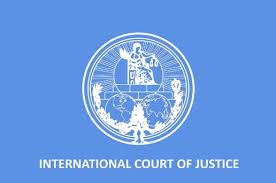Jurisdictional Principles in International Law under International Law
Jurisdictional Principles in International Law
Introduction
Jurisdiction in international law refers to the legal authority of a state to govern or regulate conduct, persons, or things. It determines the extent to which a state can apply its laws, enforce judgments, or exercise control in a particular matter. Since sovereignty is a fundamental principle of international law, jurisdiction must be exercised with respect for other states’ rights and international norms.
Types of Jurisdiction
There are three primary types of jurisdiction a state may exercise:
Prescriptive Jurisdiction (Legislative Jurisdiction)
The power to make laws that apply to persons or conduct.
Enforcement Jurisdiction (Adjudicative Jurisdiction)
The power to enforce laws or judgments, typically within its territory.
Adjudicative Jurisdiction (Judicial Jurisdiction)
The authority of courts to hear cases and make binding decisions.
Principles Governing Jurisdiction in International Law
Several principles justify or limit a state’s jurisdiction over persons, acts, or property. These principles aim to balance state sovereignty with international order.
1. Territorial Principle
Definition: A state has jurisdiction over all persons, property, and events occurring within its territory.
Scope: Includes land, airspace, territorial waters, and sometimes continental shelf.
Case Law: Lotus Case (France v. Turkey), PCIJ 1927
Facts: A French vessel collided with a Turkish vessel on the high seas. Turkey arrested the French officer on board.
Holding: The Permanent Court of International Justice (PCIJ) upheld Turkey’s jurisdiction because the effects occurred on its territory.
Significance: Confirmed the territorial principle as the primary basis for jurisdiction.
2. Nationality Principle
Definition: A state may exercise jurisdiction over its nationals, wherever they are located.
Scope: Applies to individuals or entities with the nationality of the state.
Case Law: Reparations Case (1949)
Facts: The PCIJ acknowledged states have jurisdiction over their nationals abroad.
Holding: Affirmed that nationality confers the right to legislate and adjudicate over nationals.
Significance: Reinforced nationality as a basis for jurisdiction.
3. Protective Principle
Definition: A state may assert jurisdiction over acts committed outside its territory that threaten its security, sovereignty, or governmental functions.
Scope: Often used in cases of espionage, counterfeiting, terrorism, or conspiracies against the state.
Case Law: United States v. Alcoa, U.S. Courts
Facts: The U.S. asserted jurisdiction over foreign companies whose acts abroad threatened U.S. economic interests.
Significance: Demonstrates the protective principle in domestic courts asserting jurisdiction for protective reasons.
4. Universality Principle
Definition: States have jurisdiction over certain grave offenses regardless of where they occur and regardless of nationality of perpetrators or victims.
Scope: Applies to piracy, war crimes, genocide, crimes against humanity, and slave trade.
Case Law: The Arrest Warrant Case (Democratic Republic of Congo v. Belgium), ICJ 2002
Facts: Belgium issued an international arrest warrant for a Congolese official on crimes committed in Congo.
Holding: The ICJ discussed universal jurisdiction but balanced it against immunity of officials.
Significance: Highlighted limits and scope of universal jurisdiction.
5. Effects Principle
Definition: A state may assert jurisdiction over acts committed outside its territory that have substantial effects within its territory.
Scope: Often invoked in antitrust law, environmental law, and cybercrime.
Case Law: Alcoa Case (United States v. Aluminum Co. of America)
Facts: The U.S. applied its antitrust laws to foreign conduct causing effects in the U.S.
Significance: This case is a classic example where jurisdiction was based on the substantial effects doctrine.
Limitations on Jurisdiction
Sovereign Equality and Non-Intervention: Jurisdiction must respect other states’ sovereignty and not interfere with their internal affairs.
Immunity: Certain persons (e.g., diplomats, heads of state) enjoy immunity from jurisdiction.
Forum Non Conveniens: Courts may decline jurisdiction if there is a more appropriate forum elsewhere.
Summary Table of Jurisdictional Principles
| Principle | Basis of Jurisdiction | Typical Application | Key Case |
|---|---|---|---|
| Territorial | Location within state territory | Crimes, property within territory | Lotus Case |
| Nationality | Jurisdiction over nationals | Citizens abroad | Reparations Case |
| Protective | Acts threatening state security | Espionage, terrorism | Alcoa Case |
| Universality | Jurisdiction over universal crimes | Piracy, war crimes | Arrest Warrant Case |
| Effects | Acts outside causing inside effects | Antitrust, cybercrime | Alcoa Case |
Conclusion
Jurisdictional principles in international law provide states with a framework to assert legal authority while respecting sovereignty and international order. The territorial and nationality principles are the most fundamental, but others like protective, universality, and effects principles expand jurisdiction in specific circumstances. Courts and international tribunals apply these principles to resolve disputes over jurisdictional reach and enforcement.












comments